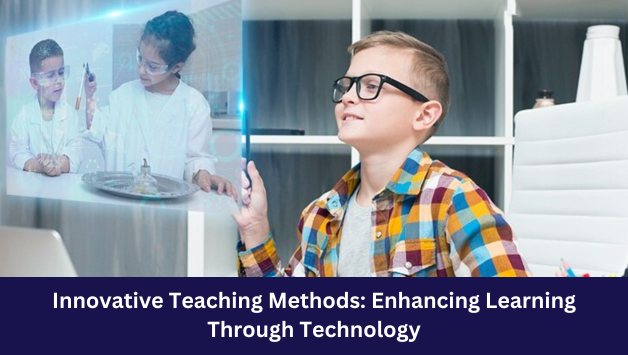Introduction:
In the rapidly evolving landscape of higher education, innovative teaching methods are essential for enhancing learning experiences and preparing students for the challenges of the 21st century. Delhi Institute of Higher Education (DIHE), in collaboration with the pgdm finance In Greater Noida, exemplifies a commitment to innovation in teaching and learning. In this article, we explore how it leverages technology to revolutionize education and empower students with the skills they need to succeed in an increasingly digital world.
Flipped Classroom Model:
The Institute adopts the flipped classroom model, which flips the traditional approach to teaching and learning. In a flipped classroom, students engage with course materials, such as lectures and readings, outside of class, while class time is dedicated to interactive discussions, problem-solving activities, and hands-on exercises. This approach promotes active learning, fosters deeper understanding of concepts, and allows students to take ownership of their learning.
Interactive Multimedia Resources:
The Institute utilizes interactive multimedia resources, such as videos, animations, and simulations, to enhance learning experiences and engage students in dynamic ways. These resources provide visual and auditory stimulation, catering to diverse learning styles and preferences. By incorporating multimedia elements into lectures and presentations, it creates immersive learning environments that capture students' interest and facilitate knowledge retention.
Virtual Learning Environments:
The Institute embraces virtual learning environments, such as online learning platforms and course management systems, to facilitate flexible and accessible learning experiences. Through these platforms, students can access course materials, participate in discussions, submit assignments, and collaborate with peers and instructors from anywhere with an internet connection. Virtual learning environments promote asynchronous learning, allowing students to learn at their own pace and schedule.
Collaborative Online Projects:
The Institute encourages collaborative online projects as a means of fostering teamwork, communication, and problem-solving skills among students. Through online platforms and tools, students can collaborate on group projects, share ideas, and work together to solve complex problems. Collaborative online projects simulate real-world work environments and prepare students for teamwork and collaboration in their future careers.
Gamification of Learning:
The Institute incorporates elements of gamification into its teaching methods to make learning more engaging and enjoyable for students. Gamification involves applying game design principles, such as points, badges, and leaderboards, to educational activities. By gamifying learning experiences, it motivates students to actively participate in lessons, track their progress, and strive for mastery of course content.
Mobile Learning:
The Institute leverages mobile learning technologies to provide students with anytime, anywhere access to educational resources and activities. Mobile learning apps, podcasts, and interactive quizzes enable students to engage with course materials on their smartphones and tablets, making learning more convenient and accessible. Mobile learning also encourages microlearning, allowing students to consume content in bite-sized chunks on the go.
Personalized Learning Pathways:
The Institute adopts personalized learning approaches to cater to the diverse needs, interests, and learning styles of individual students. Through adaptive learning software and personalized learning platforms, it tailors instruction to each student's abilities, preferences, and progress. Personalized learning pathways empower students to take control of their learning journey and achieve academic success at their own pace.
Virtual Reality (VR) and Augmented Reality (AR):
The Institute harnesses the power of virtual reality (VR) and augmented reality (AR) technologies to create immersive and interactive learning experiences. VR and AR simulations allow students to explore virtual environments, conduct experiments, and interact with objects and phenomena that would be impractical or impossible to experience in real life. By integrating VR and AR into the curriculum, it enhances students' understanding of complex concepts and fosters curiosity and exploration.
Artificial Intelligence (AI) in Education:
The Institute explores the potential of artificial intelligence (AI) to revolutionize education and personalized learning experiences. AI-powered tutoring systems, intelligent chatbots, and adaptive learning algorithms analyze students' learning behaviors and provide targeted feedback and recommendations. By leveraging AI in education, it enhances the effectiveness of teaching and learning processes and improves student outcomes.
Continuous Professional Development for Faculty:
DIHE invests in continuous professional development programs for faculty members to equip them with the knowledge, skills, and tools needed to effectively integrate technology into their teaching practices. Workshops, seminars, and training sessions on innovative teaching methods, educational technologies, and pedagogical strategies empower faculty to create engaging and impactful learning experiences for students.
Conclusion:
Delhi Institute of Higher Education’s commitment to innovative teaching methods which demonstrates the Best PGDM Banking Colleges in Greater Noida with its dedication to providing students with a transformative and future-focused education. By leveraging technology to enhance learning experiences, it prepares students to thrive in a rapidly changing world and make meaningful contributions to society. Through flipped classrooms, interactive multimedia resources, virtual learning environments, collaborative online projects, gamification of learning, mobile learning, personalized learning pathways, VR and AR technologies, AI in education, and continuous professional development for faculty, cultivates a culture of innovation, creativity, and excellence in teaching and learning. As a result, graduates emerge as lifelong learners, critical thinkers, and innovators poised to succeed in their academic, professional, and personal endeavors.


